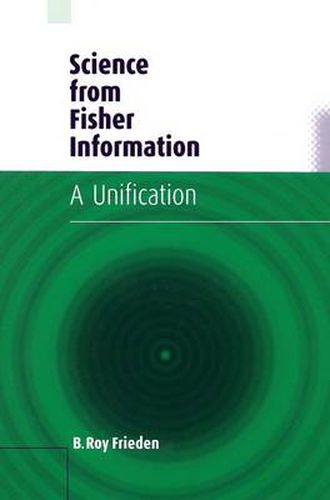Readings Newsletter
Become a Readings Member to make your shopping experience even easier.
Sign in or sign up for free!
You’re not far away from qualifying for FREE standard shipping within Australia
You’ve qualified for FREE standard shipping within Australia
The cart is loading…






This book develops and applies an analytical approach to deriving the probability laws of science in general. It is called ‘extreme physical information’ or EPI. EPI is an expression of the imperfection of observation: Owing to random interaction of a subject with its observer and other possible disturbances, its measurement contains less Fisher information than does the subject per se. Moreover, the information loss is an extreme value. An EPI output may alternatively be viewed as the payoff of a zero-sum game of information acquisition between the observer and a ‘demon’ in subject space. EPI derives, Escher-like, the very probability law that gave rise to the measurement. In applications, EPI is used to derive both existing and new analytical relations governing probability laws of physics, genetics, cancer growth, ecology and economics. This unified approach will be fascinating to students and those who seek a new mathematical tool of research.
$9.00 standard shipping within Australia
FREE standard shipping within Australia for orders over $100.00
Express & International shipping calculated at checkout
This book develops and applies an analytical approach to deriving the probability laws of science in general. It is called ‘extreme physical information’ or EPI. EPI is an expression of the imperfection of observation: Owing to random interaction of a subject with its observer and other possible disturbances, its measurement contains less Fisher information than does the subject per se. Moreover, the information loss is an extreme value. An EPI output may alternatively be viewed as the payoff of a zero-sum game of information acquisition between the observer and a ‘demon’ in subject space. EPI derives, Escher-like, the very probability law that gave rise to the measurement. In applications, EPI is used to derive both existing and new analytical relations governing probability laws of physics, genetics, cancer growth, ecology and economics. This unified approach will be fascinating to students and those who seek a new mathematical tool of research.